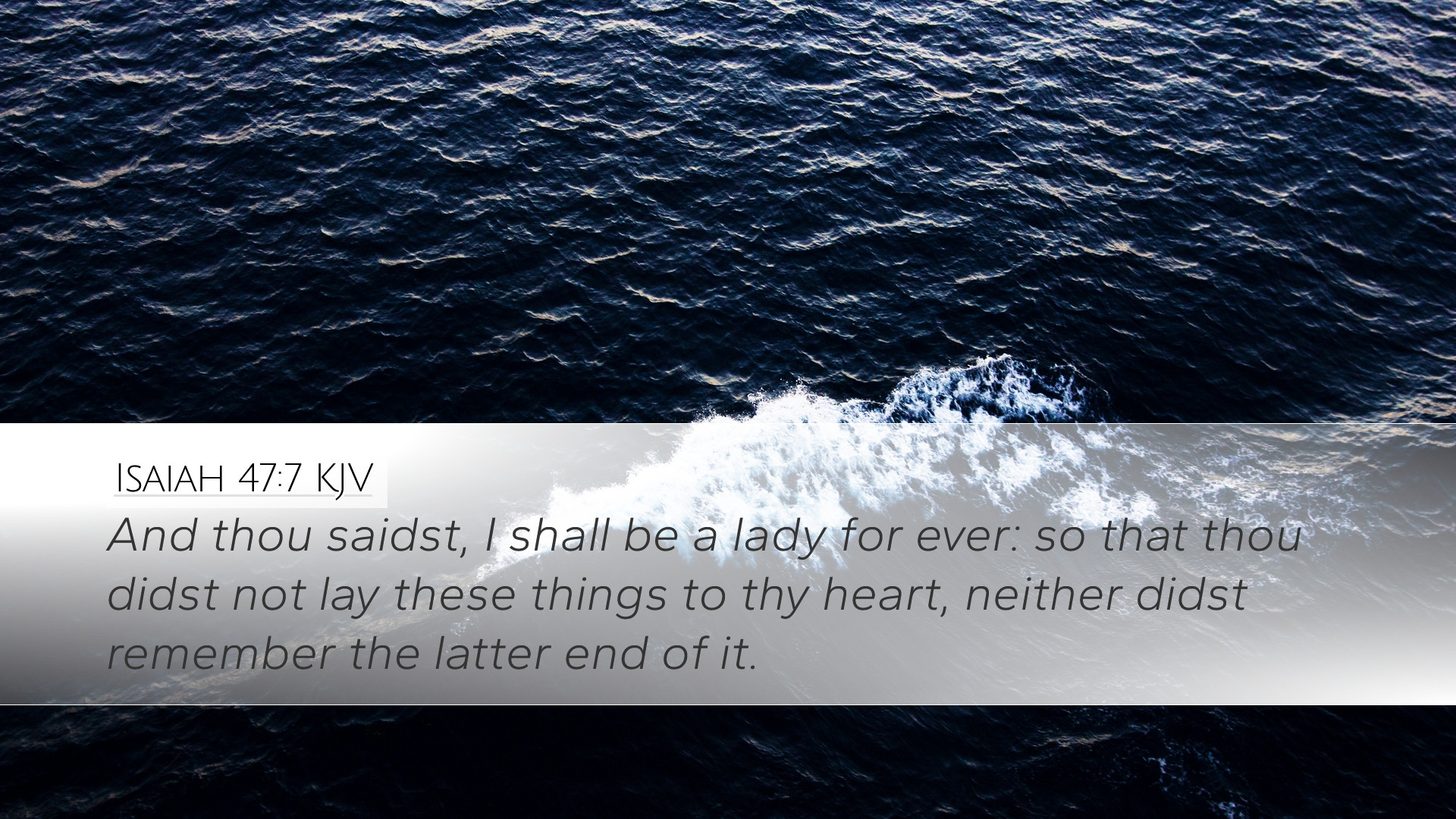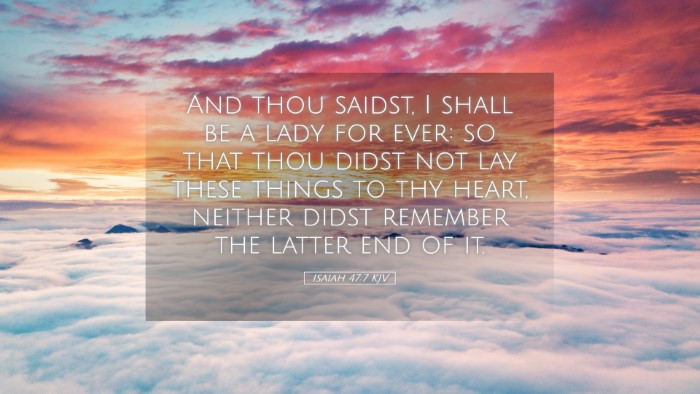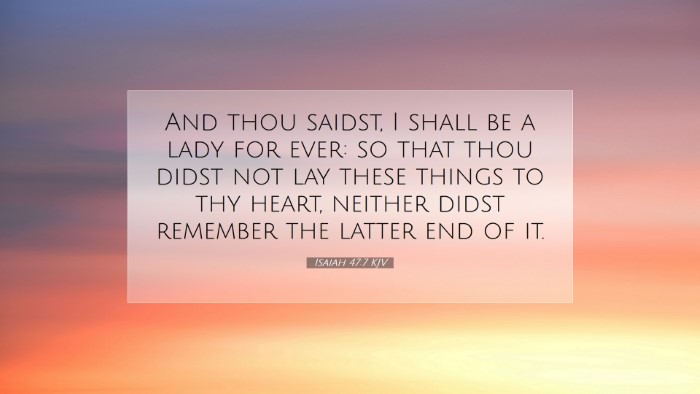Commentary on Isaiah 47:7
Verse: "And thou saidst, I shall be a lady for ever: so that thou didst not lay these things to thy heart, neither didst remember the latter end of it."
Introduction
Isaiah 47 is a powerful chapter of prophetic judgment against Babylon, personified as a proud and defiant woman. Verse 7 encapsulates the hubris of Babylon, as it proclaims its position and authority without acknowledging the divine sovereignty of God. In this commentary, insights from esteemed public domain scholars such as Matthew Henry, Albert Barnes, and Adam Clarke will be synthesized to provide a comprehensive understanding of this verse.
Contextual Background
Before delving into verse 7, it is essential to grasp the broader context of Isaiah 47. The chapter serves as a warning and a pronouncement of doom against Babylon, which had become a symbol of pride and defiance against God. The Israelites, particularly during their Babylonian exile, would find comfort in knowing that their oppressor would ultimately face divine retribution.
Historical Context
Babylon rose to prominence in the years leading to the fall of Jerusalem, exerting dominance through various means, including military strength and cultural influence. This pride led Babylon to develop an attitude of invulnerability, as illustrated in verse 7, where the city believes itself to be everlasting in power.
Verse Analysis
“And thou saidst, I shall be a lady for ever”
According to Matthew Henry, Babylon's declaration of itself as "a lady for ever" conveys a sense of relentless superiority. The term "lady" signifies not just dominance, but a position that suggests the securest of statuses, akin to royalty. Such a claim denotes a refusal to acknowledge any potential that the situation could change, illuminating a profound arrogance.
“so that thou didst not lay these things to thy heart”
Albert Barnes emphasizes the danger of ignoring the consequences of one’s actions. Babylon's failure to "lay these things to thy heart” reflects a deliberate blindness to the pressing reality of its impending judgment. This mindset serves as a poignant reminder for leaders and nations today, cautioning against the arrogance that leads to moral decay and ultimate fall.
“neither didst remember the latter end of it”
Adam Clarke interprets the phrase about forgetting "the latter end" as a stark warning about the lack of foresight inherent in pride. Babylon’s neglect of its fate and the eventual repercussions for its tyranny reveal a critical lesson: true wisdom involves recognizing the temporality of worldly power and the eternal scope of divine judgment.
Thematic Insights
Pride and Its Consequences
The core theme of eternal pride leading to downfall resonates throughout prophetic literature. Matthew Henry notes that pride often precedes destruction, a notion echoed in Proverbs 16:18. Babylon’s self-perception illustrates a deluded certainty in its endurance, a scenario not foreign to other historical empires that met sudden ruin.
The Sovereignty of God
Central to the message of this verse is the overarching sovereignty of God. While Babylon may boast, God, in His omniscience and omnipotence, will not allow such rebellion to stand unchallenged. Albert Barnes asserts that the call for humility before God is timeless, applicable to individuals and nations that stray from divine paths.
Lessons for Leaders and Nations
In applying this passage to contemporary society, pastors and leaders are reminded of their spiritual and social responsibilities. The attitude of "I shall be a lady forever" is not just a historical footnote but a mirror that reflects current behaviors of pride and self-sufficiency among nations. Adam Clarke aptly points out that nations must remember their fragility and dependency on God for true security and prosperity.
Conclusion
Isaiah 47:7 stands as a poignant reminder of the dangers inherent in pride and the neglect of divine accountability. Through the lenses of Matthew Henry, Albert Barnes, and Adam Clarke, it becomes evident that Scripture compels individuals and nations to recognize the reality of divine authority. An understanding of the "latter end" implores leaders to contemplate their legacy and their standing before God.
Final Reflections
As we contemplate Isaiah 47:7, let us internalize the necessity of humility in our lives and leadership. The passage is a clarion call against the forgetfulness of imminent divine judgment, urging a posture of servitude and reverence towards the One who holds ultimate authority. May we, unlike Babylon, constantly remember our fragile state and turn our hearts towards the Lord for guidance and grace.


